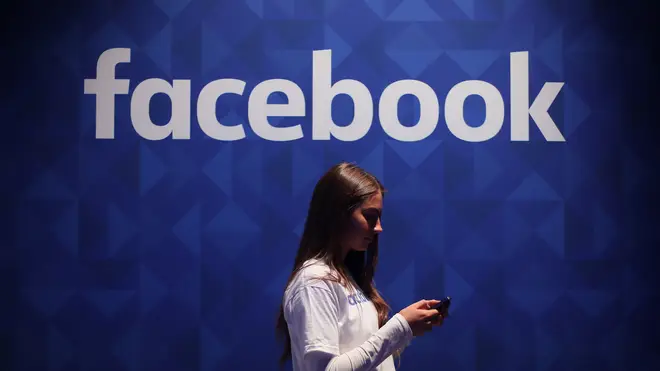
Nick Abbot 10pm - 1am
17 February 2021, 21:24

Australian politicians are considering forcing digital businesses to reach paid-for-news agreements with media companies.
Facebook has said it will move to block the sharing or viewing of news links on its platform in Australia in response to a proposed law compelling tech giants to pay for journalism.
Australian politicians are considering forcing digital businesses to reach paid-for-news agreements with media companies with draft legislation that could create a so-called News Media Bargaining Code.
The code would create an arbitration panel to set a binding price for news in situations where Google and Facebook do not reach deals with media businesses whose original journalism they link to.
William Easton, managing director at Facebook Australia & New Zealand, wrote on the company’s website on Wednesday: “In response to Australia’s proposed new Media Bargaining law, Facebook will restrict publishers and people in Australia from sharing or viewing Australian and international news content.
“The proposed law fundamentally misunderstands the relationship between our platform and publishers who use it to share news content.
“It has left us facing a stark choice: attempt to comply with a law that ignores the realities of this relationship, or stop allowing news content on our services in Australia. With a heavy heart, we are choosing the latter.”
Facebook said the changes also mean that “international” publishers can continue to publish news content on Facebook, but links and posts cannot be viewed or shared by Australian audiences.
Meanwhile its “international community” will not be able to view or share Australian news content.
Media giant News Corp has already announced it has struck a deal for Google to pay it for news as Australian politicians debate amended legislation to create the code.
Mr Easton said Facebook and other US technology businesses like Google have “fundamentally different relationships with news”.
He added: “Google Search is inextricably intertwined with news and publishers do not voluntarily provide their content.
“On the other hand, publishers willingly choose to post news on Facebook, as it allows them to sell more subscriptions, grow their audiences and increase advertising revenue.”
Last year Facebook generated around 5.1 billion “free referrals” to Australian publishers, Mr Easton claimed, worth an estimated £227 million.
He said the social media giant receives a “minimal” business gain from news, which makes up less than 4% of content users see on their news feed.
“Journalism is important to a democratic society, which is why we build dedicated, free tools to support news organisations around the world in innovating their content for online audiences,” he said.
Mr Easton claimed the proposed legislation seeks to “penalise” Facebook for “content it didn’t take or ask for”.
He said the company is prepared to launch Facebook News in Australia to “significantly increase our investments with local publishers”, but would only do so “with the right rules in place”.
Facebook News, the social network’s new section dedicated to personalised news content, launched in the UK last month, allowing users to see curated news stories from major national, local and lifestyle media outlets.
Facebook is paying publishers for their content, with input coming from media outlets such as Channel 4 News, Daily Mail Group, DC Thomson, Financial Times, Sky News and Telegraph Media Group.
Commenting on developments in Australia, Ian Murray, executive director of the Society of Editors, said: “This is really unfortunate and it is always the public, not the media, that ultimately loses out when the delivery of news is blocked in this way.
“The lesson to be learnt is that it is best to strive to reach amicable agreements.
“Here in the UK we have seen Facebook and Google recently reach agreements with UK publishers and news organisations to pay for content under licence.
“No doubt there will be further negotiations on how news providers such as publishers and broadcasters can be properly compensated for their work when it is reproduced on the digital platforms, but while this evolves it is essential the public are not denied access to news and information.”